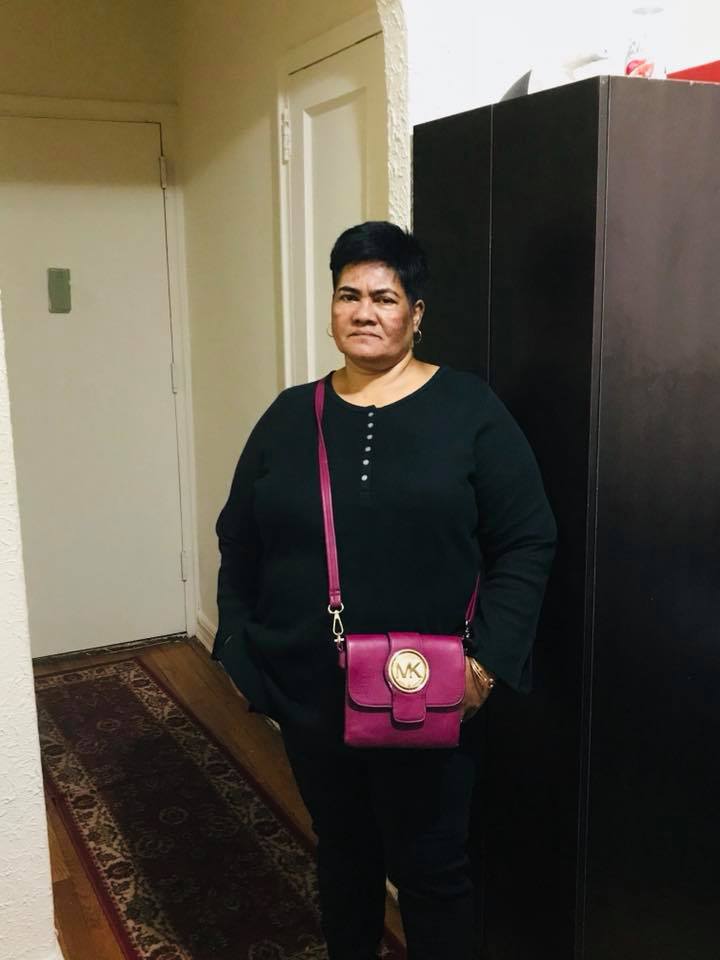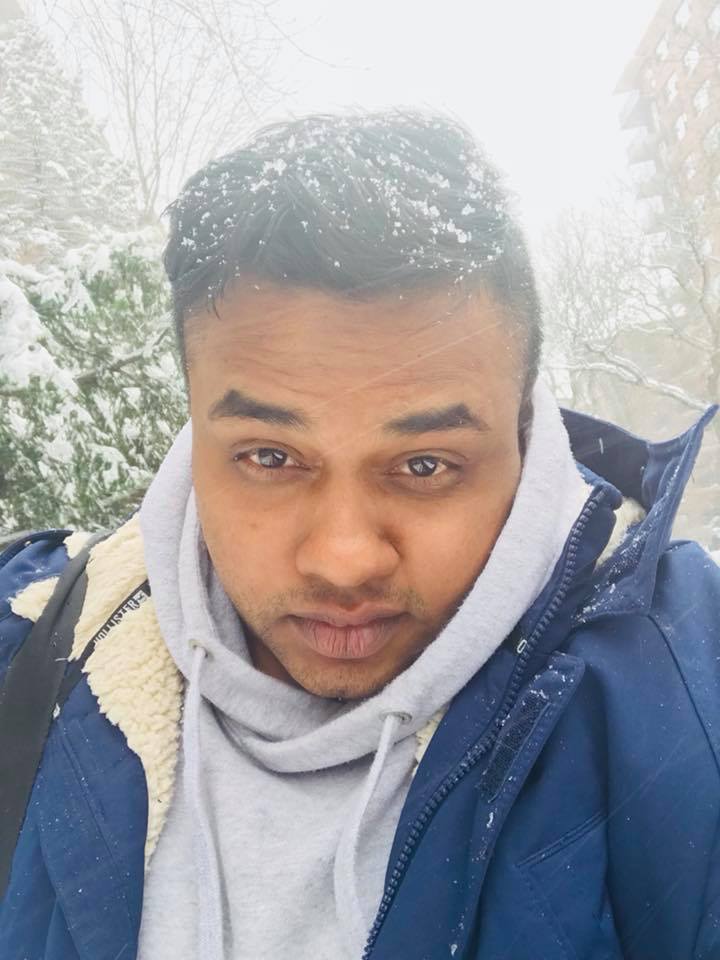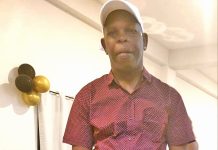By Lakhram Bhagirat
Suraj Baboolall is just 27 years old and is going through what could be considered one of the most, if not the most, terrifying experiences of his life. He tested positive for the coronavirus disease (COVID-19) after he lost his mother to the virus.
His mother, 52-year-old Ratna Baboolall, was considered Guyana’s Patient Zero after she posthumously tested positive for COVID-19. The New York-based Guyanese woman was making her annual Phagwah visit to Guyana when she took ill and subsequently passed away at the Georgetown Public Hospital.
Her COVID-19 confirmation cemented the fact that no country is immune to the disease and there need to be prepared and preventative measures to tackle the spread of the pandemic.
Following Ratna’s death, her immediate family was tested for the virus, and it was confirmed that her husband, two sons, and granddaughter were infected.
According to the World Health Organisation (WHO), coronaviruses (CoV) are a large family of viruses that cause illnesses ranging from the common cold to more severe diseases such as Middle East Respiratory Syndrome (MERS-CoV) and Severe Acute Respiratory Syndrome (SARS-CoV).
Coronavirus disease (COVID-19) is a new strain that was discovered in 2019 that had not been previously identified in humans. Coronaviruses are zoonotic, meaning they are transmitted between animals and people.
Common signs of infection include respiratory symptoms, fever, cough, shortness of breath, and breathing difficulties. In more severe cases, the infection can cause pneumonia, severe acute respiratory syndrome, kidney failure, and even death.
Suraj recently, via telephone from a mandatory isolation facility, shared the story of his family’s ongoing battle with COVID-19 with the Sunday Times Magazine.
Starting from the beginning, Suraj said that he and his sister migrated to the United States about 15 years ago and would usually return home for Phagwah every year. It became their tradition and this year was no different.
They were all set to travel to Guyana from New York on March 7, but Suraj decided that he needed more time in Guyana and brought forward his flight to March 1.
Ratna, who is Guyana’s patient zero, had a history of chronic diabetes among other health issues. Days before she travelled to Guyana, she complained of body aches, but that was dismissed due to her diabetes. She visited a doctor in New York who told her that her headaches and body aches were due to diabetic pain.
She took her insulin and those pains went away.

After Suraj left New York for Guyana, his mother went about her routine and would later come to Guyana. When she arrived, she was in great spirits and good health. She would later fall ill complaining of a persistent headache, but took some painkillers and rested.
On March 10, a test of her blood glucose level revealed it was at 578. Later that day, another test showed that her blood sugar level had risen to 598. Sensing that something was wrong, Suraj drove his mother to a health facility at Lusignan, East Coast Demerara (ECD), where they were told that it was suspected that she had pneumonia. However, further testing had to be done to confirm.
The then worried Suraj asked if his mother could receive some saline and insulin to bring her blood sugar level back to normal, but was told that the facility was not licensed to administer such. He then decided to take his mother to a private medical facility in Georgetown.
While taking her medical and travel history, a doctor at the private hospital immediately referred them to the Georgetown Public Hospital, since they had travelled from NY.
“The doctor said that the Ministry ordered that all patients who are sick and travelled from New York must go to the Public Hospital, because of the coronavirus and I said okay we will go. I went there and when we got there and I explained mom’s condition to the Patient Advocate there literally yelled at me telling me that we have to wait,” he related.
After about 20 minutes of waiting, he realised that his mother was having trouble breathing after which they realised she needed a doctor immediately. Her entire medical and travel history was once again related to the doctors who attended to her and at no point did they indicate COVID-19 was suspected.

They began treating her and after about five minutes Ratna had her first pulmonary embolism due to what was diagnosed as diabetic ketoacidosis. She lost consciousness and had to be resuscitated. After Ratna was resuscitated, doctors intubated her and informed Suraj that his mother would need to be hospitalised in the Intensive Care Unit (ICU).
However, cognisant of the foreign items in her throat and nose, Ratna began attempting to remove the tubes which resulted in her being tied to the bed.
“It was hurtful seeing her tied to the bed and with all the tubes, so I came out of the hospital. About 3 am (on Wednesday, March 11) I went in back and they said they have to take out the tube, but ICU got to do it. I went home and came back at 7 am and I spoke to a Dr Slowe and Dr Bux and they said they will take the tubes out. At that point, they did not run a test for coronavirus even if she was showing the symptoms. They even told me that she looks like she got diabetes ketoacidosis based on the embolism. They said she is responding good to the meds and so, and so they told me to go home and when I come back, she will be in the ICU,” Suraj remembered.
He heeded the advice and went back home. After just 30 minutes of being at home, he received a call asking him to return to the hospital. He immediately left for the Hospital and when he got there, he saw the doctors sanitising themselves and that was when he sensed something was wrong.
He was placed to sit and told that his mother died of suspected COVID-19.
“They told me that she crashed for 40 minutes and they were trying to bring her back but she died. I broke down and was yelling and so. Then, and they told us that it looks as though she died with corona and they took a sample and they sent it away. They allowed me to go home and made me promise not to meet with anyone and no one comes to our home. We did follow that order and they called me at 7 and said mom was positive for corona, but the news had already reached to the media before it got to us,” he related.
Suraj, already devastated by the death of his mother, was further devastated because he had to find out her cause of death via the media. He then petitioned the Medical Council to have the information of the family be kept confidential since they deserved their privacy.
Since COVID-19 is so contagious, Public Health Ministry officials visited the family on March 12 with a number of sanitising agents for their home and person. They were advised against having contact with anyone outside of the household.
The health officials returned on March 13 and administered the COVID-19 test to the family members, and it was later confirmed that Suraj, his father and brother were positive. His niece would later test positive.
Again, the family received no prior information of their diagnosis, rather they, along with the entire country, learnt they were positive for COVID-19 via a televised update from the Minister, Volda Lawrence on March 14.
Suraj and his family were told to remain isolated and according to him they complied, but on March 15, they were told that they would be moved to an East Bank Demerara (EBD) isolation facility. They were moved there and commenced their 14 days of isolation.
To date, the family members remain asymptomatic. While in isolation they are taking every measure to protect themselves and the health workers tending to their medical needs.
According to the Cleveland Clinic, up to 80 per cent of COVID-19 cases exhibit little or no symptoms of the virus.
Suraj’s daily routine includes having his temperature taken, blood pressure and sugar level recorded, as well as having his vitals recorded. He remains relatively healthy with almost no known complication.
“I have no symptoms. I am stressed out, and we have not had the chance to grieve our mother’s death as yet. There are no symptoms. There is no diarrhoea, fever, coughing, nothing showing on none of us here. It baffles us that people are dying but we are here showing no symptoms. But I am appealing to you all don’t take this thing lightly, it is scary,” he warned.
He said that the family members were together and they were helping each other get through the process of isolation. They are looking to each other for support because if one of them breaks down, then everything goes haywire. Though the family is helping each other out, they are yet to receive any form of psychological treatment from the Ministry to deal with the associated trauma of such a virus.
Suraj shares the following advice for those who have tested positive or are in quarantine as suspected COVID-19 cases:
“The main thing is to be calm. This is not a disease that will kill you if you don’t have underlying medical conditions. You gotta practise social distancing. We need to listen to the authorities. Two weeks will not be long. Stay home, quarantine, practise good hygiene and it is of utmost importance to wash your hands.
“If someone positive and have to be isolated, don’t fight it. Don’t go to the media. I mean that I was one to do that, but then I learnt that this is for the betterment of yourself, the betterment for your family, your country as a whole. If you are quarantined, then there will be provisions in place to help you. Your concerns are addressed. Try not to fight and be here, take a rest and count it as a two-week vacation and it will go through fast. Help yourself to help your family. Do not discriminate; that is the main thing. Don’t discriminate because it would not help anyone, because that person is going through a whole lot already.”
If anyone is experiencing symptoms of the coronavirus, they are asked to call the hotline on 227-4986 ext 215 or 624-3067 and a team would be sent to their location.











